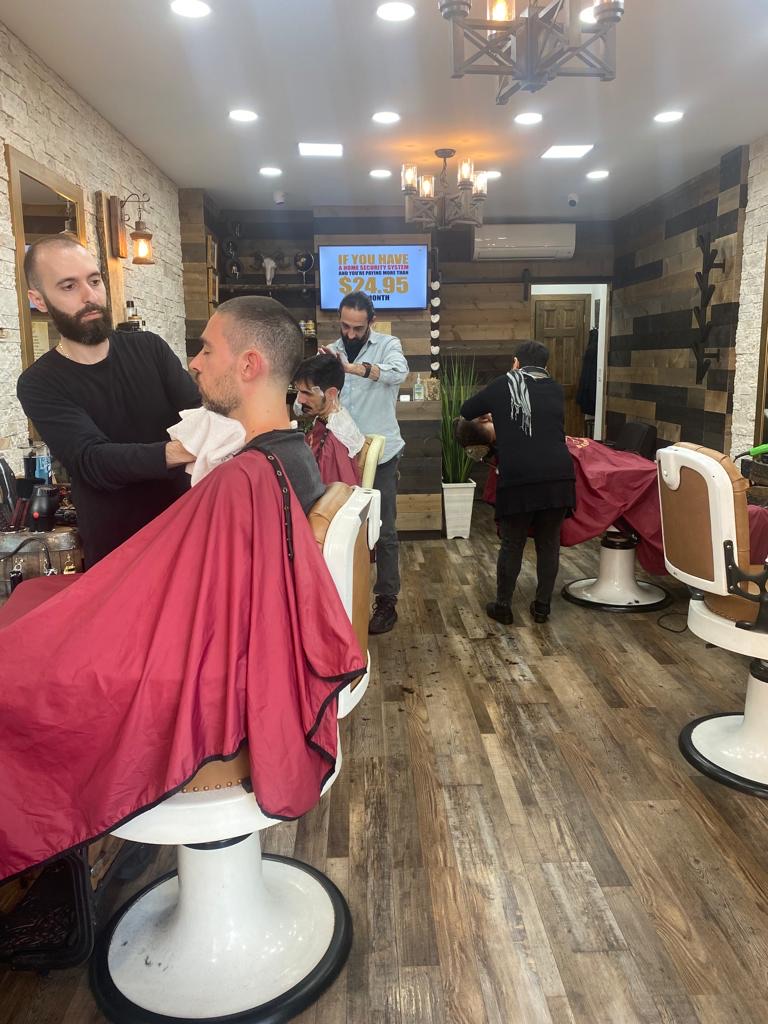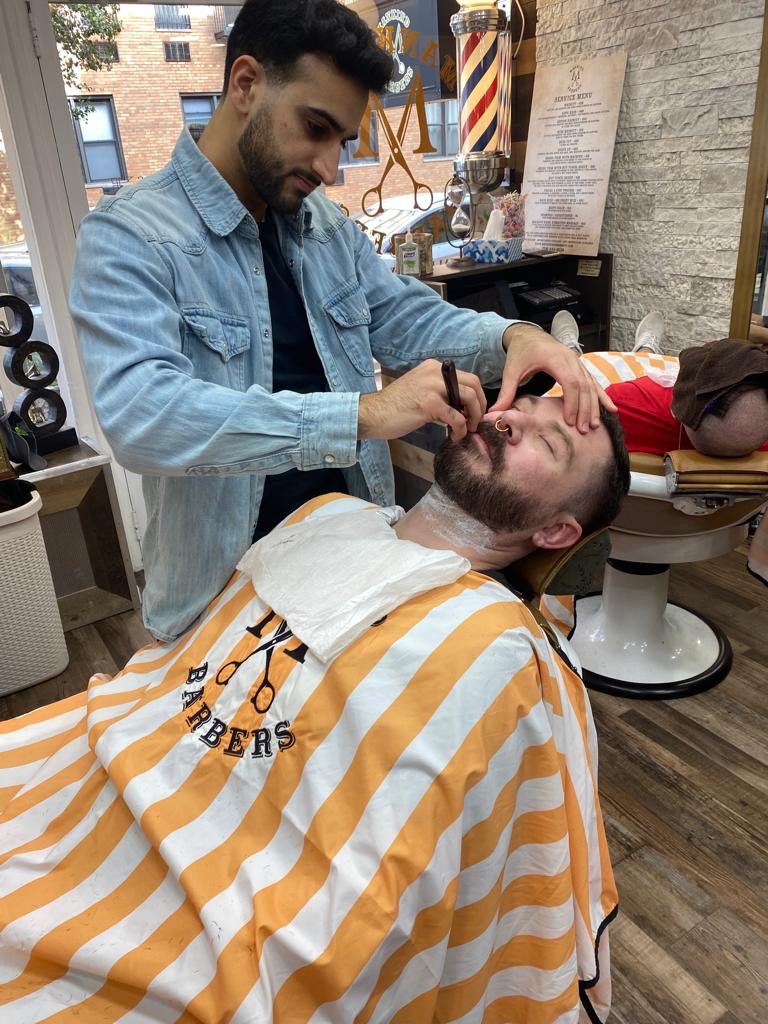Frequently Asked Questions
During NYC's cold months, the best moisturizing products to prevent beard dandruff include beard oils rich in jojoba oil, argan oil, and vitamin E, which deeply hydrate and nourish the skin beneath the beard. Products like Honest Amish Beard Oil and Jack Black Beard Oil are highly recommended for their ability to soften facial hair and reduce flakiness. Beard balms containing shea butter and beeswax, such as those from Beardbrand or Grave Before Shave, provide an additional layer of moisture and protection against harsh winter winds. For those with sensitive skin, fragrance-free options like Cremo Beard and Scruff Cream offer soothing hydration without irritation. Regular use of a gentle beard shampoo, like Professor Fuzzworthy's Beard Shampoo, helps maintain a clean and healthy beard environment, further preventing dandruff.
In a cold office environment, it is advisable to wash the beard two to three times a week to prevent skin irritation while maintaining optimal beard health. Over-washing can strip the beard of its natural oils, leading to dryness and flakiness, which are exacerbated by the dry air typically found in cold office settings. Utilizing a gentle beard shampoo or cleanser with moisturizing properties can help maintain the skin's hydration levels. Incorporating a beard conditioner or oil post-wash can further nourish the hair and underlying skin, reducing the risk of itchiness and irritation. Additionally, regular brushing with a boar bristle brush can help distribute natural oils evenly, promoting a healthy beard and comfortable skin.
To reduce beard itchiness in winter, one can employ several grooming techniques that focus on hydration and skin care. Regularly washing the beard with a gentle, sulfate-free beard shampoo helps remove dirt and excess oil without stripping natural moisture. Following this, applying a nourishing beard oil or balm, rich in ingredients like jojoba oil, argan oil, or shea butter, can deeply moisturize both the facial hair and the underlying skin, preventing dryness and flakiness. Exfoliating the skin beneath the beard with a soft-bristled brush or a beard scrub can remove dead skin cells and promote healthy circulation, reducing itchiness. Trimming the beard regularly with sharp scissors or a quality trimmer can prevent split ends and maintain a neat appearance, while using a humidifier indoors can add moisture to the air, further combating dryness. Additionally, maintaining a balanced diet rich in omega-3 fatty acids, vitamins A, C, and E, and staying hydrated by drinking plenty of water can support overall skin health, reducing the likelihood of itchiness.
In cold weather, dietary changes that support healthier beard skin include increasing the intake of omega-3 fatty acids, which are found in foods like salmon, walnuts, and flaxseeds, as they help maintain skin hydration and elasticity. Consuming foods rich in vitamin E, such as almonds, sunflower seeds, and spinach, can protect the skin from oxidative stress and improve its barrier function. Incorporating vitamin C-rich foods like oranges, strawberries, and bell peppers can enhance collagen production, promoting skin resilience. Zinc, found in oysters, beef, and pumpkin seeds, plays a crucial role in skin repair and inflammation reduction. Additionally, staying hydrated by drinking plenty of water and consuming hydrating foods like cucumbers and watermelon can prevent dryness and flakiness. These dietary adjustments can collectively enhance the skin's ability to withstand the harsh effects of cold weather, ensuring a healthier beard and underlying skin.
To protect a beard from the drying effects of indoor heating in NYC offices, one should incorporate a comprehensive beard care routine that includes the use of a high-quality beard oil or balm, which provides essential hydration and locks in moisture. Utilizing a humidifier in the office or at home can help maintain optimal humidity levels, preventing the beard from becoming brittle. Regularly washing the beard with a gentle, sulfate-free beard shampoo and conditioner can remove impurities without stripping natural oils. Applying a leave-in conditioner or beard butter can further nourish the facial hair and skin. Additionally, using a boar bristle brush can help distribute natural oils evenly throughout the beard, enhancing its luster and softness. Consuming a diet rich in omega-3 fatty acids, vitamins A, C, and E, and staying well-hydrated can also support healthy beard growth and resilience against environmental stressors.

